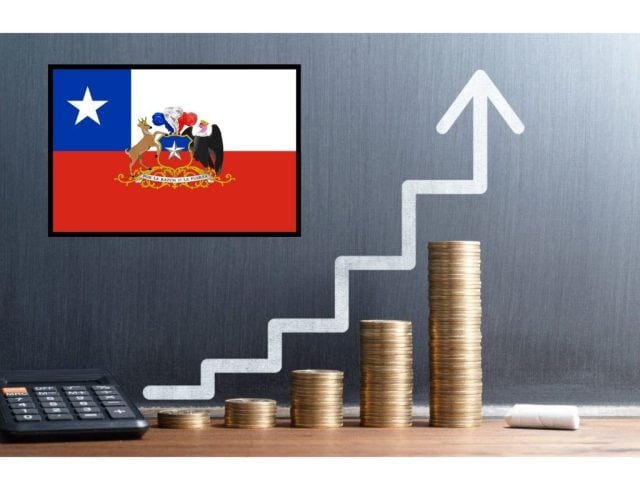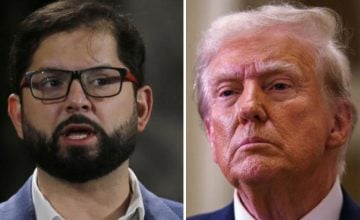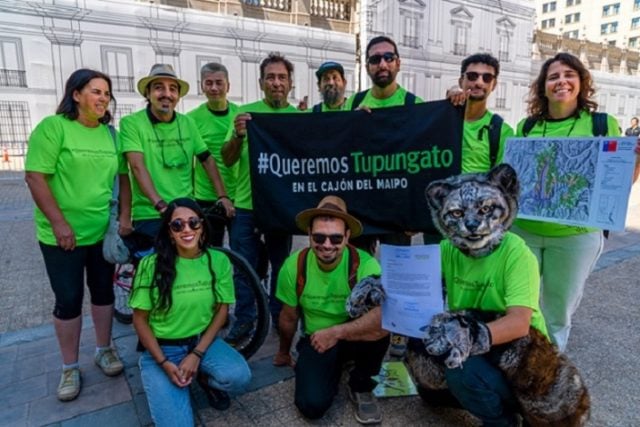During the opening of the National Business Meeting (Enade) 2025, \»Verba et facta: words and deeds,\» organized by the Chilean Institute of Rational Business Administration (Icare), the President of the Republic, Gabriel Boric, and the president of the Confederation of Production and Commerce (CPC), Susana Jim e9nez, offered an upbeat assessment of Chile’s trajectory, underscoring that \»Chile is not falling apart.\»
From their respective vantage points, both leaders converged in highlighting Chile’s strengths and a shared pride in the country.
Jim e9nez: \»Evidence-based optimism\»
Susana Jim e9nez opened her presentation, \»The Last Mile to Development,\» drawing on Matt Ridley’s 2010 book \»The Rational Optimist\» to advocate for an \»evidence-based optimism\» when assessing Chile’s outlook.
In her remarks, the industrial engineer with a master’s in economics from the Pontifical Catholic University of Chile outlined a landscape of clear strengths alongside persistent challenges.
First, Jim e9nez pointed to the country’s natural and human potential and the dynamism of its private sector. \»In Chile we have so much—from the northern desert to the southern ice fields, fertile valleys and productive activity,\» she said. \»And it’s not just nature: we have extraordinary talent in our people, women and men who transform this country, plus business opportunities that have multiplied over time. We have world-class companies that have gone global, opened new markets and delivered results.\»
She also stressed that Chilean companies are able to adapt to shocks and adversity.
\»When plan A doesn’t work, they move to plan B—and that resilience keeps them going. Over time this has forged a vigorous, innovative business sector in Chile, able to navigate even global pandemics like the one we faced early this decade,\» she said.
On socioeconomic indicators, Jim e9nez cited metrics tracked by The Economist and noted that \»Chile today stands at an average US$36,300 in GDP per capita.\»
\»What does that mean? It puts us in a leading position within Latin America,\» she added. \»You can debate methodologies—maybe a bit more, maybe less—but there’s no bias in the trend: Chile has been at the forefront of the region for decades, just a touch below Uruguay.\»
\»And this isn’t the only ranking where Chile stands out. The United Nations Human Development Index also reflects that leadership. In that UN list, Chile ranks 45th. It’s true, it’s not the absolute top—no reason to pop champagne when 44 countries sit higher—but we have long led Latin America and are classified as a country of very high human development. That tells us we’re doing many things right,\» she emphasized.
\»We must be doing something right\»
The University of Desarrollo humanities master’s graduate also noted that Chile is followed in that classification by Hungary, a nation \»in the heart of Europe\» that buys Chilean products despite being 14,000 kilometers away.
\»We’re even a notch above it. So yes—we must be doing something right, and that should make us proud,\» she said.
She also highlighted the dramatic fall in poverty, from roughly 60% in the 1990s to single digits on the income measure, while warning about multidimensional poverty that still affects 22.3% of the population.
\»We remain the best performer in Latin America. But note this: one in five Chileans still lives in multidimensional poverty, and that must be front and center in public policy so we can reduce it as fast as possible,\» she said.
The export opportunity
The CPC chief did not gloss over Chile’s problems. After 25 years of growth above 5%, \»the last 10 have brought relative stagnation, with the economy expanding less than 2%,\» she said, attributing the slowdown mainly to a four-point drop in investment as a share of GDP and excessive red tape: \»Chile seems stuck as permitting, bureaucracy and hurdles to getting projects approved flourish.\»
Even so, she found a key reason for optimism in the export engine.
\»Exports have unleashed and propelled our economic growth far beyond our borders,\» she said, noting that \»last year exports reached an astonishing 12-digit figure—US$103 billion—something we had not achieved before in trade in goods and services.\»
\»Why does that matter? Because it speaks to our export intensity. Again, we’re leaders in Latin America. Export intensity means exports per capita are higher than in the rest of the region—even higher than in historically export-heavy economies such as Mexico or, in its day, Argentina,\» Jim e9nez explained.
Engines for sustainable growth
To unlock Chile’s potential, Jim e9nez laid out six \»engines for sustainable growth\» agreed with the CPC’s six branches: tax competitiveness, labor adaptability, research and development, state modernization, security and infrastructure. \»We need to take the human brake off our economy,\» she said, calling for a pact in which \»the private sector, the public sector, academia and civil society each bring their best.\»
She clarified that this \»last mile\» is not literal and will not be achieved in a single administration: \»It will probably take time—one or two decades—but we know we can do it, because we’ve done it before.\»
\»We lack nothing; we simply have to do things right, and business is aligned with that goal. Count on companies’ work—we’ve walked a long road that has taken time and effort,\» she said.
Jim e9nez closed on an optimistic note: \»I’m proud of what we’ve achieved as a country. We’ve already come a long way, and if we’re given the green light and the right conditions, we can compete and win in Chile and around the world.\»
President Boric: \»Chile is not falling apart\»
Speaking via video link from Rome, Italy—where he traveled for an audience with Pope Leo XIV at the Vatican—President Gabriel Boric echoed the sentiment of national pride.
Referring to a video shown at the start of the event, he said: \»If there’s something we share, it’s the pride we feel for Chile.\»
\»That pride was clear in the introductory video presented by the great Pedro Carcuro, once again calling us to stand up. After watching it, the first conclusion is that we can do anything—that Chile is not falling apart, contrary to what some claim. Moving forward through challenges depends on us, united,\» he said.
He linked the event’s motto, \»Words and Deeds,\» to Chile’s bid to host the 2036 Olympic Games—an ambitious goal that, like the Santiago 2023 Pan American Games, could unite the country. \»I agree with you, Susana: we can and should plan for the long term,\» he added, addressing Jim e9nez.
Critique of the \»economy that kills\» and a call for solidarity
In his remarks, the head of state shared reflections from Pope Leo XIV’s apostolic exhortation \»Dilexi te,\» a document he read before meeting the pontiff.
He urged listeners to engage without prejudice: \»Everything in this exhortation is not ideology; as the document itself defines it, it is an apostolic exhortation—and thus speaks to everyone, regardless of political convictions.\»
First, Boric quoted the Pope on poverty and inequality, scourges that affect societies worldwide: \»The poor are not poor by chance or by a blind, bitter fate. Even less is poverty a choice for most of them. And yet some still dare to claim it, revealing a chilling cruelty.\»
\»We cannot say that most poor people are poor because they lack merit. That false view of meritocracy acts as if only those who have succeeded in life have merit,\» he added.
The President also read passages in which Leo XIV denounces \»the dictatorship of an economy that kills\» and warns that \»while the profits of a few grow exponentially, the earnings of the many drift ever further from the well-being of that happy minority.\»
Boric underscored the Pope’s critique of ideologies that defend \»the absolute autonomy of markets and financial speculation,\» which establish a \»new invisible tyranny,\» sometimes virtual, \»imposing its laws and rules unilaterally and relentlessly.\»
He closed by amplifying Leo XIV’s call to action: \»The dignity of every human person must be respected now, not tomorrow,\» he said, adding that \»the misery experienced by so many, whose dignity is denied, must be a constant call to our conscience—they cannot wait for a mere trickle-down.\»
\»We must commit to addressing the structural causes of poverty. Emergency assistance programs should be temporary responses, because a lack of equity is the root of social ills,\» the head of state argued. Later Tuesday in Rome, he also met with Food and Agriculture Organization (FAO) Director-General QU Dongyu.
Finance Minister Grau urges business to consider \»what kind of State you need\»
During the opening of Enade 2025, Finance Minister Nicol e1s Grau also participated, highlighting Chile’s steady growth and public–private cooperation.
\»Forecasts have converged around 2.5% for this year. A challenge during our government has been that we’ve tended to be more optimistic than the market—yet, in the end, projections align,\» the minister said.
\»In 2024 we saw unbalanced growth, with exports playing a predominant role. It’s important to aim for balance—more investment and stronger domestic demand support more solid growth. That’s what we’re seeing now in 2025. Exports still matter, but internal demand is firmer,\» he added, as reported by La Tercera.
He reaffirmed that the purpose of growth under President Boric’s administration \»is to improve people’s quality of life\»—but, he stressed, urgent needs must be addressed in a way that is sustainable over time. \»If handled irresponsibly, we mortgage that future,\» he said, underscoring the need for fiscal responsibility and broad agreements.
\»Chile needs to grow more, but with broad agreements and policies that build social consensus,\» he said.
In his remarks, he highlighted the mining royalty and the pension reform as examples of policies \»with certainty and cross-cutting agreement.\»
He also urged the private sector to reflect on its relationship with the State, arguing that \»when companies come individually, they ask for a more agile state; when they organize as industry groups, they ask not to be bothered.\»
\»Think about what kind of State you need to grow,\» he emphasized, recalling that \»when I served as economy minister, I met many firms through lobbying.\»
\»Individually, they asked for a swifter, more muscular State to solve their problems. But at the industry level, the request was different: taxes and regulations that don’t bother us,\» he said.
\»To be even more provocative: you don’t just need a State that doesn’t bother you—you need a State that creates public goods with you, strategically,\» Grau concluded.










